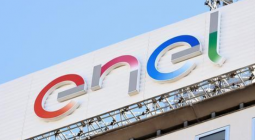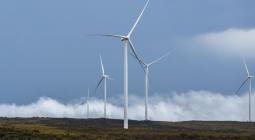Enel boosts its 2030 greenhouse gas emission reduction target to 80% from 70%, SBTi-certified

- The new 2030 target on direct greenhouse gas emission reductions compared to a 2017 base year has been certified in line with the Science Based Targets initiative (SBTi), a global initiative validating corporate decarbonization strategies
- Enel is the first major, global, integrated utility to set an emission reduction target in line with the United Nations pledge to limit the maximum global temperature rise to 1.5°C from pre-industrial levels
- The Enel Group, in its path towards full decarbonization by 2050, has already decreased direct greenhouse gas emissions per kWh by more than 36% in 2019 vis-à-vis 2007 levels
Rome, October 30th, 2020 – Enel committed to an 80% reduction[1] in its direct greenhouse gas (GHG) emissions per kWh by 2030, from a 2017 base-year, becoming the first major, global, integrated utility to set an emission reduction target consistent with the United Nations pledges to limit global warming to 1.5°C above pre-industrial levels and to achieve net zero emissions by 2050, as validated by the Science Based Targets initiative (SBTi).
“With our commitment to such a drastic reduction in our emissions, we are leading the way in the fight against global warming,” said Francesco Starace, Enel CEO and General Manager. “As we progress along this path, we are working relentlessly to maintain our leadership in the energy transition through an ever-increasing focus on carbon-free activities. We are increasing the share of renewables in our generation mix. We are working with our customers towards energy efficiency and electrification, enabling change through reliable, digitized and resilient grids. A truly innovative and sustainable company is one that does not hold back from embracing change, but strives to lead it.”
Enel’s new SBTi-approved target entails a reduction in the Group’s 2030 direct emission threshold to 82 gCO2eq/kWh from 125 gCO2eq/kWh corresponding to the previous 70% target, which was announced last year.
Enel is contributing to the energy transition by promoting a sustainable business model across its entire value chain. It was one of the first companies in the world to join the SBTi in 2015. The Group is making good progress towards the achievement of the SBTi target as in 2019 its direct GHG emissions per kWh were reduced by more than 36% compared to 2007, and it will continue this trend through major investments in renewables and thermal decommissioning. Through Enel Green Power, which is now the world’s largest private renewable player, Enel currently boasts over 47 GW of installed renewable capacity, exceeding that of thermal sources. Furthermore, the Enel Group is working towards phasing out its coal footprint by 2030. All these activities are expected to lead up to the Group’s full decarbonization by 2050.
Currently, Enel operates the largest private electricity distribution network globally with a grid of more than 2.2 million kilometers for over 74 million end users, of which more than 60% are already digitized. In addition, Enel’s advanced energy solutions business line Enel X is proactively contributing to decarbonize other sectors such as transport, with more than 140,000 public and private charging points for electric vehicles made available worldwide.
The Intergovernmental Panel on Climate Change (IPCC), the United Nations body in charge of assessing the science related to climate change, has warned that, in order to limit some of the worst climate impacts, temperature rise must be held to 1.5°C above pre-industrial levels on the road to a net-zero future by 2050. Businesses have a critical role to play in order to tackle this global challenge and the SBTi is positioned as the world’s most recognized initiative to champion science-based target-setting as a way of boosting companies’ commitment to supporting the transition to a zero-emission economy.
The SBTi is a collaboration between CDP, the United Nations Global Compact, World Resources Institute (WRI) and the World Wide Fund for Nature (WWF). It provides companies with a pathway to identify how much and how quickly they need to reduce their GHG emissions with the aim to curtail rising global temperatures. Furthermore, the SBTi enables companies to set emission reduction targets consistent with the most ambitious aim of the 2015 Paris Agreement on Climate Change: to limit global warming to 1.5°C above pre-industrial levels.
The setting of such a new target can be achieved through the growth of renewables. Further information on Enel’s commitment to renewables, as green energy output exceeds that from thermal in areas of the world such as Europe, is available here: https://www.enelgreenpower.com/stories/articles/2020/08/time-renewables-now
[1] The commitment is equivalent to reaching 82 gCO2eq/kWh of direct GHG emissions (GHG Scope 1) in 2030 from 414 gCO2eq/kWh reported in base-year 2017. Additionally, Enel is maintaining its commitment to reduce by 16% its indirect emissions from the sale of natural gas in the retail market by 2030, from a 2017 base-year.
30 October 2020
ENEL




